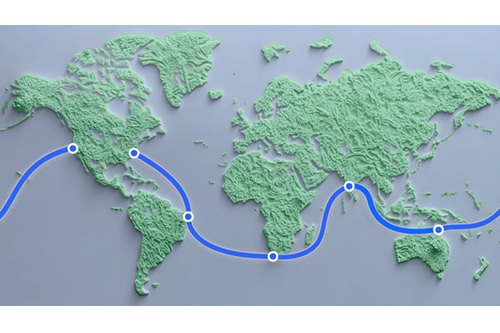Vietnam Plans New Undersea Cables Amid Security Concerns
 By Mike Firn, Radio Free Asia
By Mike Firn, Radio Free Asia
October 9, 2024
Vietnam is planning to lay two new undersea fiber optic cables as part of a telecoms infrastructure master plan hinging on emerging technologies, the government said.
The choice of suppliers is proving controversial, amid reports the U.S. is lobbying Vietnam against choosing Chinese companies.
Wednesday’s announcement on the plan for the new cables came as Deputy Prime Minister Nguyen Hoa Binh signed a digital infrastructure development strategy that aims to roll out a much-delayed 5G mobile network by the end of next year, Reuters news agency reported.
The government unveiled its Information and Communication Infrastructure Master Plan 2021-2030 in January, focusing on integrating technologies such as artificial intelligence, cloud computing and the internet of things.
As part of the plan, Vietnam aims to add as many as 10 fiber optic cables by 2030.
That would be relatively modest compared with Southeast Asian neighbors. By 2023, Singapore aims to have 39 cables, Malaysia 25, the Philippines 24, and Thailand 13.
Vietnam currently has five underwater cables linking it to the global internet. The aging infrastructure has suffered repeated failures over the past decade, slowing internet speeds to a crawl, Vietnamese media reported.
Selecting a new supplier is proving a headache for a government keen to establish itself as a regional tech hub and win more business from the likes of Google and Meta.
U.S. officials have been lobbying their Vietnamese counterparts since January to persuade it not to sign contracts with Chinese suppliers such as HMN Technologies, Reuters reported in September, citing people involved in or briefed about the talks.
Washington also shared satellite images and other intelligence with Hanoi it said pointed to possible sabotage of Vietnam’s existing cables, the news agency said without naming any suspected culprit.
Vietnam faces three main risks if it chooses a Chinese cable company, according to Carl Thayer, emeritus professor at the University of New South Wales, Canberra.
news via inbox
Sign up to get the latest updates straight to your inbox!
 By Mike Firn, Radio Free Asia
By Mike Firn, Radio Free Asia



